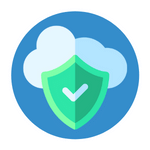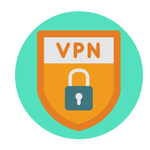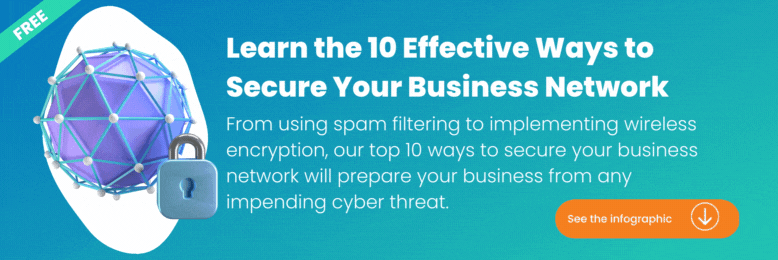How Can I Improve My Business Network Security?
March 23rd, 2022 | 3 min. read

When discussing cybersecurity, people don’t usually think about small businesses, and I think it’s about time we do.
The media covers breaches in governmental and big-business security to excess. Over the last year, people have heard ransomware attack news here and there on big corporations such as Colonial Pipeline and Twitch. These entities usually have lucrative targets that attract the attention of hackers. However, these are isolated cases. As huge as they are, of course, these businesses are often backed up with an extremely protective network security system that’s difficult to crack.
It would take weeks, even months, for attackers to find the right time to infiltrate such systems if they ever will. Now, when hackers can’t break the big system, they turn their attention to easier targets.
While most hackers want the opportunity to crack a high-risk target, these situations, again, are few and far between. Instead, they turn their attention toward much lower-hanging fruit.
You guessed that right–to the small and medium-sized businesses. They still have access to money and data but have much lower defense than a governmental entity. Luckily, many average cyber security strategies can keep the would-be hackers away. Their methods are always changing, though, and it helps to be one step ahead of the game.
For almost twenty years, Intelligent Technical Solutions has helped hundreds of clients leverage technology to protect their business networks. In this article, you will learn about the best current strategies to help keep your business network security intact.
6 ways to bolster your business network security
Whether home or business, any network is vulnerable to malicious use and accidental damage. With these six key network protection measures, you can ensure that your business will not fall victim to such cyberattacks.
 1. Cloud Security
1. Cloud Security
Cloud is where you store all the valuable company data, and securing it should come as second nature to any business owner.
Cloud security is the protection of data stored online via cloud computing platforms. It involves safeguarding your business data from theft, leakage, and deletion. As more and more businesses switch from hard-drive data storage to remote databases, this practice is becoming more prevalent–as it should.
Methods of providing cloud security include:
- Firewalls,
- Penetration testing,
- And virtual private networks (VPN), to name a few.
While many people still feel that their data and information are better stored on a hard drive on their own network, data stored in the cloud may actually be more secure, depending on the system’s defense strategy. Be wary, though: not all cloud securities are made the same. Do your research and pick one that will best protect your data.
 2. Network Security
2. Network Security
Network security protects the underlying networking infrastructure from unauthorized access, misuse, or theft. This is what your network administrator will need to put into place in order to keep your devices and data secure.
The best approach to protecting your network is to create a strong WiFi password. Random numbers and letters work best for a small business since nobody but those who need it will be able to guess the password. In addition to a strong password, you’ll also have to anticipate any type of internal attack.
 3. VPNs And Firewalls
3. VPNs And Firewalls
Another viable solution is by using a VPN or Firewall.
A VPN can help protect your security by masking your IP address. This essentially means that you’ll be connected through a different server, making it much harder for the government or websites to pinpoint your location. It also encrypts all network data by creating a secure tunnel, allowing you to go from point to point without revealing your identity.
A firewall, on the other hand, is simply a shield that protects your computer from the Internet. It can help restrict access to sites that could be damaging to your network. Both of these tools can be highly effective when used properly, but they do not protect against all threats.
 4. Updates And Upgrades
4. Updates And Upgrades
While it might seem simple, consistently updating and upgrading your technology tools can keep you much more secure.
The developers of many of the tools you are subscribed to are constantly looking for new threats that pose a risk to their program; then, they’ll issue patches to make sure any holes are filled. You just need to make sure that all of your tools are updated in a timely manner and verify that the updates are installed.
 5. Data Backups
5. Data Backups
An adequately set up data backup plan can help a business recover as quickly as possible after an unforeseen disaster.
You never know when a power surge or some type of natural disaster might cause your current files to be deleted. These accidents are unpredictable and often inescapable. However, you can strategize a plan to retrieve missing data and minimize downtime should anything happen.
 6. Team Member Training
6. Team Member Training
It’s important to limit team member access to systems and data owned by your company. Not everyone needs to have access, so only give it to those who can’t work without it.
There should also be some type of security training for all employees.
Phishing schemes and weak passwords create just as many issues as hackers do so you should make sure everyone in your workplace is security-conscious. A single breach could critically hurt your business. Hence, everyone in the team needs to understand this so they can be proactive as well.
Here are other courses of action you may take to ensure you have strong business network security. Watch this video for a quick walkthrough:
Ready to improve your business network security?
No matter which route you take, the most important thing you can do for your small business is protecting its network.
Governmental entities and big businesses do not suffer from security lapses nearly as bad as small businesses. A security lapse could even stop your business dead in its tracks. Therefore, you will need to assess your network and find the best solution to protect it from harm as early as possible.
Contact us today for a free network assessment.
Jess is a Content Writer who commits herself to creating helpful, relevant, and easy-to-digest technical articles. When she isn't writing, she devotes her energy (and money) to collecting K-Pop photo cards, which she likes to call an 'investment.'
Topics:
